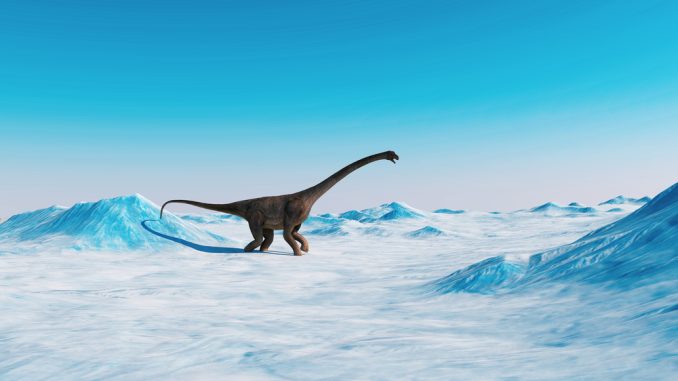
According to the research on prehistoric mass extinction, dinosaurs adapted to the harsh climate in polar zones before the mass extinction event made room for their dominance at the end of the Triassic.
What Caused The Dinosaurs To Vanish?
The widely accepted hypothesis of how the dinosaurs perished 66 million years ago involves a violent impact between Earth and a meteorite, followed by a global winter during which the atmosphere was choked by dust and debris.
The extinction that occurred 202 million years ago, however, that wiped out the large reptiles that had previously governed the globe and seemingly paved the path for dinosaurs to take over, is far more obscure and less well-known.
Triassic was the name of the age, and it was typically hot and humid. However, the frigid weather that had already been established in the poles extended to lower latitudes, eradicating the cold-blooded reptiles. But, as per research reported in the journal Science Advances, dinosaurs that had already evolved escaped the evolutionary limitation and dispersed.
Recent finding: Dinosaurs Lived On Ice
The research is based on recent digs in northwest China’s Junggar Basin, where researchers discovered dinosaur footprints and strange rock shards that could only have been laid down by ice.
The researchers discovered that the winters may have lasted for a decade or longer, possibly even reaching the tropics.
Due to their primitive feathers, which served as insulation, dinosaurs were able to tolerate the frigid circumstances. Furthermore, many dinosaurs also had warm-blooded, high-metabolism systems, in contrast to the cold-blooded reptiles. In cold climates, dinosaurs would have benefited from both characteristics.
There is a misconception that dinosaurs always resided in lush, tropical forests, but the latest study demonstrates that the higher latitudes would have been chilly and possibly even completely covered at certain times of the year, according to Stephen Brusatte, professor of paleontology as well as evolution at the University of Edinburgh, as reported by latestly.com.



